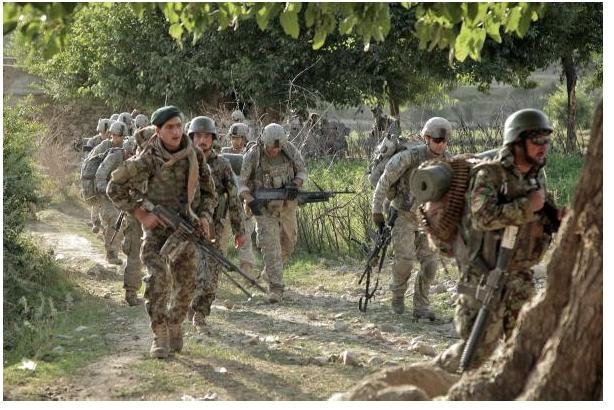The United States carried out an airstrike on the Afghan city of Kunduz early Tuesday in a bid to retake the city from Taliban insurgents, one day after insurgents overran the strategic northern city. Violence has increased in Afghanistan since most U.S. and NATO forces left in 2014. File photo by Tia Sokimson/U.S. Army
KABUL, Afghanistan, Sept. 29 (UPI) -- The United States carried out an airstrike on the Afghan city of Kunduz early Tuesday, one day after Taliban insurgents overran the strategic northern city.
U.S. Army Col. Brian Tribus, spokesman for the U.S. and NATO missions in Afghanistan, said the airstrike was conducted "in order to eliminate a threat to coalition and Afghan forces." It was not clear if more will follow.
Afghan forces have secured the Kunduz prison, a police compound and the neighborhood of Zir Dawra, police spokesman Sayed Sarwar Hossini said.
"The Taliban are being pushed back. In a few hours the city will be free from their hands," said Dowlat Waziri, deputy spokesman for the defense ministry.
He said the army sent reinforcements from neighbouring Kabul and Balkh provinces, including special forces.
The Kunduz attack Monday was considered one of the most significant assaults by the Taliban since the group lost power in the U.S.-led invasion in 2001. Taliban fighters released more than 500 inmates from the prison and seized a 200-bed hospital, posting photos on social media.
Afghan Chief Executive Abdullah Abdullah, in an address Monday at the U.N. General Assembly meeting in New York, called on Pakistan to live up to a promise to crack down on known terror groups.
"We also call on regional stakeholders and our international partners to realize the gravity of the situation, and use their good offices or any effective means to support our aspirations for a genuine and durable confidence-building peace process leading to talks with willing Taliban and other armed opposition groups," he said.















